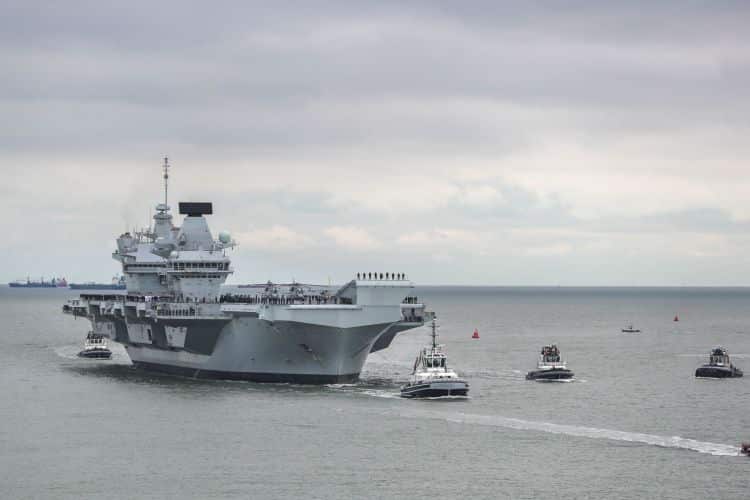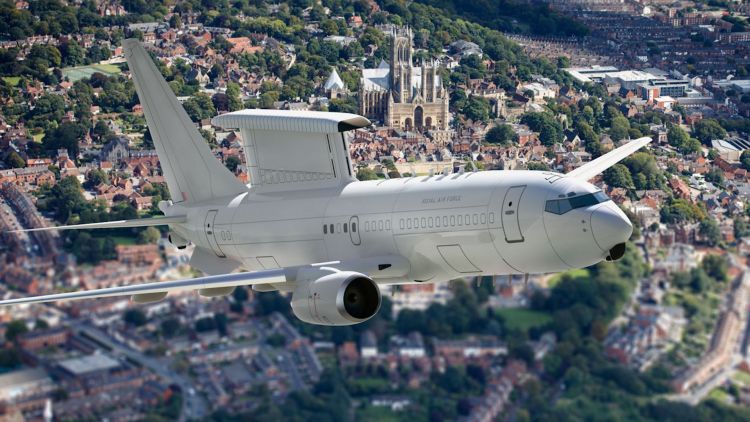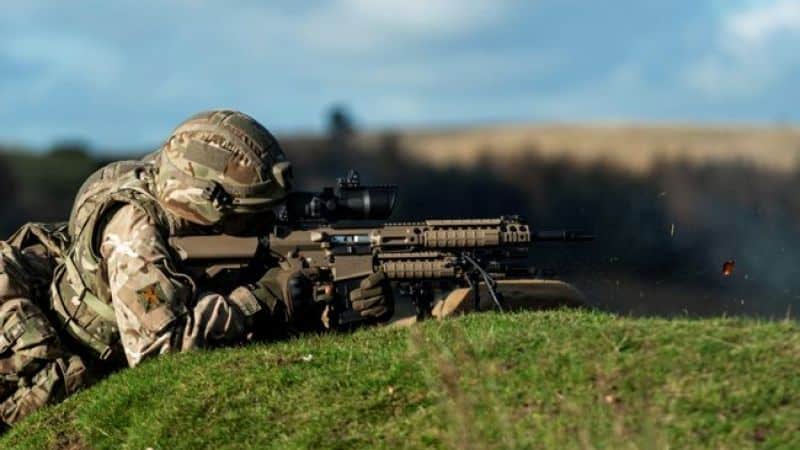- The measures include reservists being suspended, changes to HMS Prince of Wales’ training, and pausing civil servant recruitment.
The British military is to make £1 billion of cuts over the next year in response to a defence funding black hole.
The move is part of cost-cutting measures implemented by the Ministry of Defence (MOD) to make in-year savings on a £13 billion gap in funding, evidenced by a National Audit Office (NAO) report earlier in the year.
It comes less than a month after Boris Johnson set out a £16.5 billion increase to the MOD’s budget over the next four years.
In February, the NAO said the MOD’s equipment procurement and support budget is “large” but it “does not cover its forecast cost over 2019-2029”.
The cuts include Royal Navy reservists being suspended, training days for British Army reserves being scaled back, and alternative training plans for Queen Elizabeth-class aircraft carrier, HMS Prince of Wales.
It is thought further measures will be taken by Christmas in order to meet the £1 billion mark.
Royal Navy Reserves
Defence Secretary Ben Wallace has signed off a directive that will see Royal Navy reservists suspended for the first time, aiming to save £7.5 million.
The suspension is until April 2021.
Drill nights, training weekends and two-week training for the reservists will be “paused”, but they will remain at “high readiness if needed”.
A total of 450 naval reservists, including 150 currently mobilised and 300 on the full-time reserve service, are expected to continue as normal, however.
Facing anger in the House of Commons over the decision and the failure to notify Parliament, UK Defence Secretary Ben Wallace said service chiefs “make thousands of decisions” throughout the year, and that the move would not have been delivered in a “single statement” by “any government”.
Admiral Lord West, former First Sea Lord, was concerned by the timing of the call, with reservists currently supporting border control in the Channel and available to protect fishing in the event of a no-deal Brexit.
He told Forces News:
“I think it’s a slight insult, bearing in mind that many of these men and women will actually suffer financial penalty as a result of this cut, because they’ve got to do a certain number of days to get their annual bonus – they won’t be able to do that.”
HMS Prince of Wales arrives in Portsmouth after Liverpool visit 250320 CREDIT ROYAL NAVY

British Army Reserves
The number of Army reserves training days will be scaled back from 38 to 32 and this is expected to save £11 million.
HMS Prince of Wales
Plans for Britain’s second aircraft carrier will also be part of the MOD’s attempt to save £1 billion.
HMS Prince of Wales will not go to the United States next year for essential training as part of the Westlant exercise in a bid to save a further £2 million.
Similar training is expected to take place in British waters instead.
Royal Air Force Aircraft
The Royal Air Force will also be included in the planned MOD cuts.
HMS Queen Elizabeth continues her ‘Operational Testing’ with the embarked UK F-35B Lightning fighter jets, Merlin and Wildcat helicopters during ‘WESTLANT 19’
The RAF’s Boeing E-3D Sentry fleet will be halved from six to three aircraft.
The plan is for the MOD to sell off three of the aircraft once they are decommissioned, amounting to a saving of £138 million.
In 2019, then-Defence Secretary Gavin Williamson signed a £1.5 billion deal to purchase five E-7 Wedgetail aircraft.
The fleet of E-7s is set to replace the E-3D Sentry aircraft as the UK’s Airborne Early Warning and Control capability, with the first E-7 aircraft expected to join the RAF in 2023.
Civil Servant Recruitment
Recruitment of civil servants will be paused until the spring, saving nearly £9m in total.
It is expected this move will save £8m for the Army and £750,000 for the Navy.

Last month, the Prime Minister confirmed the £16.5 billion increase to the MOD’s budget over the next four years, including specific details about his vision for the future Armed Forces.
The Government also said the extra spending could be as high as £24.1 billion over the four years when added to the Conservatives’ manifesto commitment of the 0.5% uplift.
A defence source said: “The settlement received by defence was hugely welcome, but we know this does not solve all of our problems.
“We still have difficult and necessary decisions to make to address our financial position, and will not shy away from the responsibility we have to the taxpayer.”





